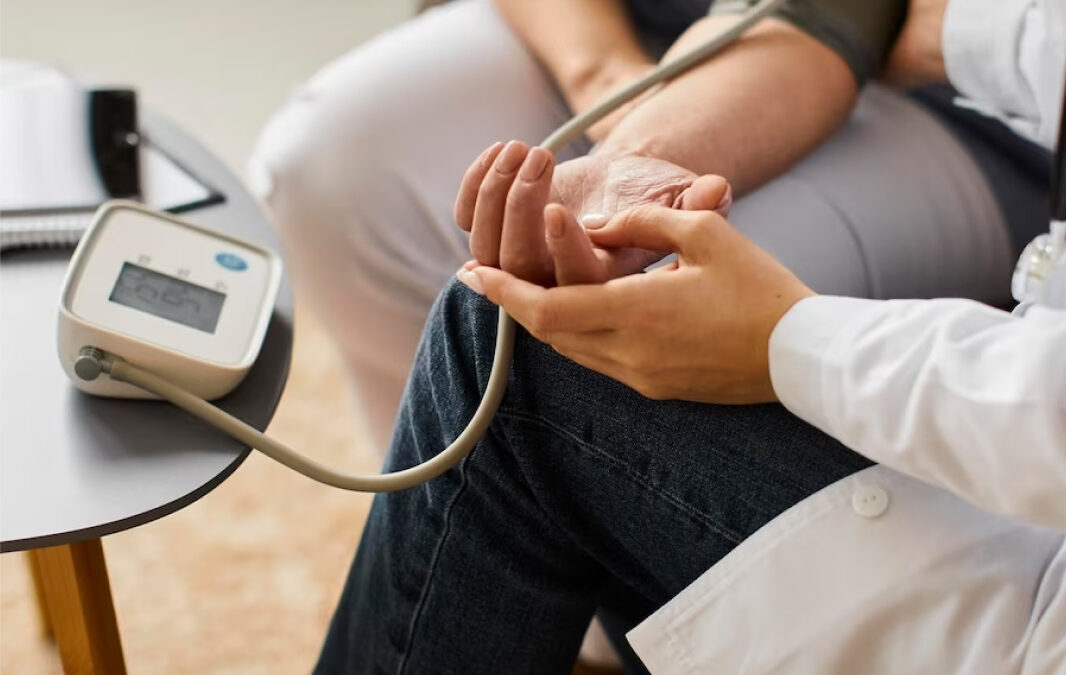Cholesterol is a waxy substance present in our bodies that plays a vital role in various physiological processes. However, elevated levels of LDL (low-density lipoprotein) cholesterol, often referred to as “bad cholesterol,” can increase the risk of heart disease and other cardiovascular problems. Fortunately, many lifestyle changes can help improve cholesterol levels and reduce the risk of heart-related issues. In this article, we will explore the top five lifestyle changes that can have a positive impact on your cholesterol levels and overall heart health.
-
Adopt a Heart-Healthy Diet
Diet plays a significant role in determining cholesterol levels in the body. Making smart food choices can help reduce LDL cholesterol while increasing HDL (high-density lipoprotein) cholesterol, often referred to as “good cholesterol.” Here are some dietary guidelines to improve your cholesterol profile:
a. Reduce Saturated Fats: Limit the intake of saturated fats found in red meat, full-fat dairy products, and processed foods. Instead, opt for lean protein sources like fish, poultry, legumes, and tofu.
b. Choose Healthy Fats: Incorporate monounsaturated and polyunsaturated fats into your diet. These heart-healthy fats can be found in olive oil, avocados, nuts, and seeds. They help increase HDL cholesterol levels and reduce LDL cholesterol.
c. Increase Fiber Intake: Consume more soluble fiber, as it has been shown to lower LDL cholesterol levels. Foods rich in soluble fiber include oats, barley, fruits, vegetables, and legumes.
d. Omega-3 Fatty Acids: Include sources of omega-3 fatty acids, such as fatty fish (salmon, mackerel, and sardines), flaxseeds, and chia seeds. Omega-3s help reduce inflammation and improve cholesterol levels.
e. Minimize Trans Fats: Avoid trans fats found in partially hydrogenated oils, as they raise LDL cholesterol and lower HDL cholesterol. Check food labels and steer clear of products containing trans fats.
-
Regular Physical Activity
Engaging in regular physical activity is another essential lifestyle change to improve cholesterol levels. Exercise not only helps raise HDL cholesterol but also aids in weight management and promotes overall cardiovascular health. Aim for at least 150 minutes of moderate-intensity aerobic exercise or 75 minutes of vigorous-intensity exercise per week. Activities like brisk walking, jogging, swimming, cycling, and dancing are excellent choices to get your heart pumping and boost your HDL cholesterol.
-
Maintain a Healthy Weight
Excess weight, especially around the waistline, can contribute to high LDL cholesterol levels and increase the risk of heart disease. Losing as little as 5% to 10% of your body weight can significantly improve cholesterol levels and overall cardiovascular health. Combining a heart-healthy diet with regular exercise is the most effective way to achieve and maintain a healthy weight.
-
Avoid Smoking and Limit Alcohol Intake
Smoking is a significant risk factor for heart disease and negatively impacts cholesterol levels. It lowers HDL cholesterol and damages blood vessels, making it easier for LDL cholesterol to accumulate and form plaques. Quitting smoking is one of the most impactful lifestyle changes you can make for your heart health.
While moderate alcohol consumption may have some heart benefits, excessive alcohol intake can raise triglyceride levels and contribute to high blood pressure. If you choose to drink alcohol, do so in moderation – up to one drink per day for women and up to two drinks per day for men.
-
Manage Stress
Chronic stress can indirectly affect cholesterol levels. When we are stressed, our bodies may produce more cortisol, a hormone that influences cholesterol metabolism. Additionally, stress can lead to unhealthy coping mechanisms like overeating, smoking, or excessive alcohol consumption. Managing stress through relaxation techniques like meditation, yoga, deep breathing exercises, or engaging in hobbies can positively impact cholesterol levels and overall heart health.
Improving your cholesterol levels through lifestyle changes is an empowering and proactive step towards better heart health. By adopting a heart-healthy diet, engaging in regular physical activity, maintaining a healthy weight, avoiding smoking, limiting alcohol intake, and managing stress, you can positively impact your cholesterol profile and reduce the risk of heart disease.
Remember that cholesterol management is a lifelong journey, and it’s essential to be patient and consistent with these lifestyle changes. Regular cholesterol screenings and consultations with your healthcare provider are crucial to track your progress and make any necessary adjustments to your plan. By taking charge of your lifestyle and making these positive changes, you are investing in your long-term well-being and working towards a healthier and happier heart.

